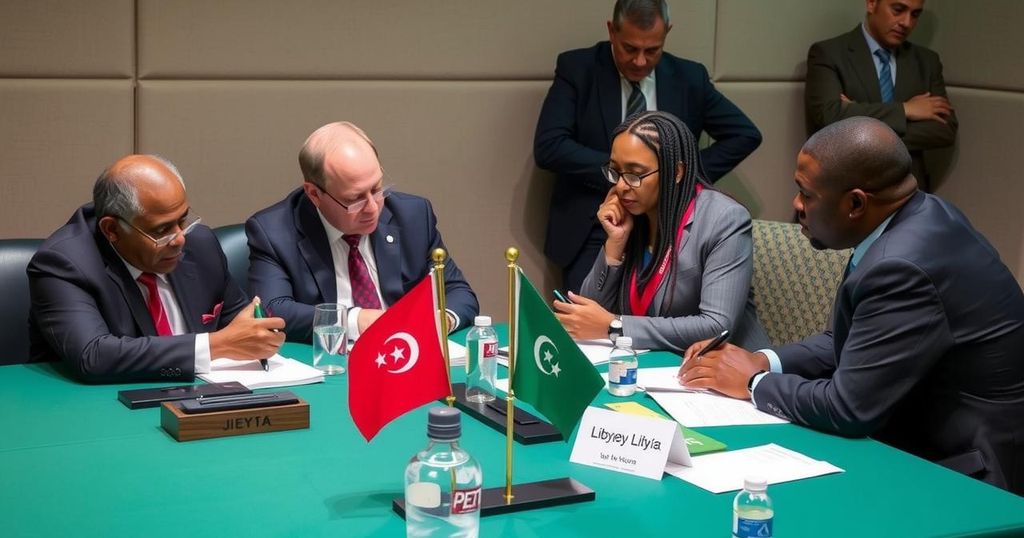Global news
ABDUL, ABDULHAMID AL - DBEIBAH, AFRICA, CONFLICT RESOLUTION, DBEI, DBEIBAH, ECONOMIC SANCTIONS, FOREIGN AFFAIRS, GNU, GOVERNMENT OF NATIONAL UNITY, KOURY, LIBYA, OF NATIONAL UNITY, REGIONAL COOPERATION, REGIONAL SECURITY, REUTERS, SOVEREIGNTY, STEPHANIE KOURY, U. N, U. N. MISSION, UN, UNITED NATIONS, UNSMIL
Isaac Bennett
0 Comments
UN Initiates New Efforts to Resolve Libya’s Electoral Stalemate
The United Nations has launched a new technical committee of Libyan experts to resolve long-standing electoral challenges and expedite national elections in Libya. Following the collapse of the 2021 election due to candidate disputes, the U.N. mission aims to overcome electoral law issues and achieve timely elections while addressing concerns of public skepticism and political legitimacy.
The United Nations has initiated a new effort to address the electoral stalemate in Libya, with the formation of a technical committee comprising Libyan experts aimed at resolving pressing issues hindering national elections. This announcement was made by Stephanie Koury, the acting head of the U.N. mission in Libya (UNSMIL), during a video statement. The committee is expected to explore solutions regarding electoral laws, with a focus on facilitating timely elections by establishing guarantees and a clear timeframe.
Since the collapse of elections originally scheduled for December 2021 due to disputes about candidate eligibility, the political situation in Libya has remained unresolved, perpetuating a conflict that has persisted for over a decade. Koury emphasized that the mission will strive to navigate the complexities of the electoral process while also aiding in the unification of military and security institutions, alongside efforts towards national reconciliation.
Libya has experienced instability since the overthrow of Muammar Gaddafi in 2011, leading to a division of power between eastern and western factions. The Government of National Unity (GNU), established in 2021 under Prime Minister Abdulhamid al-Dbeibah, faces challenges to its legitimacy, as the parliament no longer recognizes its authority. Although political actors advocate for elections, public skepticism persists regarding their true intentions and whether they would support a transition of power. The U.N.’s involvement aims to facilitate dialogue and enhance the likelihood of a successful electoral process.
In summary, the United Nations’ recent initiative to resolve the electoral impasse in Libya represents a critical step towards establishing a stable political environment and enabling national elections. By convening a committee of experts to address key electoral issues, the U.N. aims to facilitate a democratic process amidst challenges of legitimacy and public skepticism. Continued efforts towards national reconciliation and unification of security institutions are essential for achieving lasting peace in Libya.
Original Source: www.investing.com




Post Comment